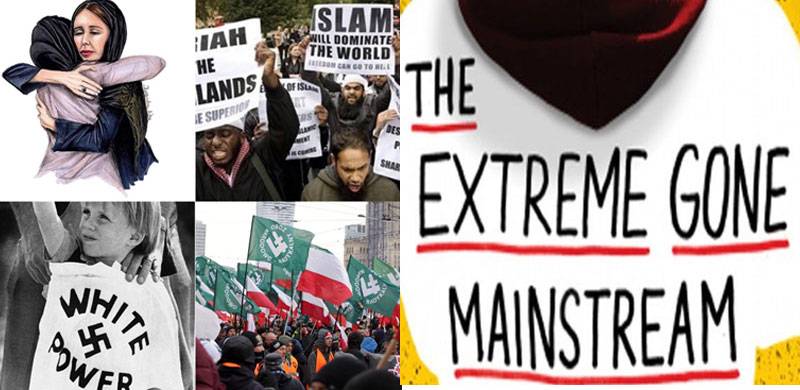
“The leaders come and go, but the people remain. Only the people are immortal.” [Joseph Stalin]
In real democracies, it is the people who possess the real power, for at the end of the day, they are the ones who are to decide the next leader of their state. Once elected, high office bearers have to keep in mind that their each act of social goodness will be tantamount to having higher chances to be elected for their second term. If the job is well done as per governance, no force prevents them from occupying the office for whatever their stint is. In recent times, this precedent has been set by New Zealand's Prime Minister Jacinda Ardern who has lately made it to the PM house for the second time after winning the election on 17 October this year. All of the world's media celebrated her triumph by flashing the headlines.
Since she deserves much more than this, her victory has not struck anyone with surprise. She won accolades and ovations from across the globe for tackling the coronavirus pandemic so sagaciously. Under her leadership, New Zealand was among the first and foremost countries that reported zero cases back in June this year and declared the country virus-free. She proved the mettle of her leadership by closing down the borders for foreigners—who were feared to be carrying the virus to other states— and imposing early curbs on travelling. Her timely actions in the right direction saved her citizenry from facing the debilitating effects of a paralyzed economy that many developed countries had been facing then. To one's consternation, the total number of the people who tested positive for COVID-19 has not exceeded 2,000 with mere 25 deaths reported so far. The Premier is also said to have contributed her victory to rightly handling the pandemic. And now it is one of those states that can call this pandemic a thing of the past without a modicum of doubt.
In the month of March last year, the ill-natured terrorist attack on a Muslim mosque in Christchurch New Zealand —perpetrated by an Australian National namely Branton Tarrant—left the premises of the mosque drenched in the blood of 51 people. Jacinda had been very agile in responding to the bereaved families. Everyone knows how she was intermittently seen cuddling the mothers and sisters who had lost their near and dear ones. Sadness reflected from her face during those days made everyone feel that she was really heartbroken by that incident. It is also true that New Zealand has experienced a few terrorist attacks since its inception, yet Ardern did her best to make Muslims, who are living as a minority in this state, feel that in no way they are not equal to the natives.
As far as sentencing the attacker was concerned, although there was no death penalty inscribed in the Constitution of New Zealand, a judge of Christchurch court sentenced Tarrant to death without parole. Passing remarks on the case, judge grieved that the act of Tarrant was “ inhuman” and that he showed “no mercy”. After that ill-natured event, New Zealand passed strict gun rules across the country and decided to buy back some of its ilk from citizenry.
The Muslim community—knowing that their loved ones would never come back— however welcomed the verdict of the court. This whole episode indicates that the leaders who aim for establishing an all inclusive state are always impartial in providing relief and justice to the inhabitants of their countries irrespective of their caste, colour and creed. Jacinda fulfills the criteria all too well.
The world was again praising Jacinda for her immediate response to the massive volcano eruption of White Island that put to sleep 20 people, mostly tourists, in December last year. That notorious volcano eruption was termed by the experts as one of the world’s worst eruptions experienced so far. The prime minister termed it a “calamity”. Nonethless, she was seen hugging the women security personnel and firefighters as a gesture of appreciating their agility and hard work. Some people also said that such pictures were also not dissimilar to the ones captured when she hugged the victims of Christchurch massacre.
Having said all this, it is also true that Jacinda has been failed to deliver on one of her key promises after assuming the office in 2017. And that was taking the Kiwis of the less developed towns out of poverty. An interview of some residents of underprivileged areas of New Zealand conducted by BBC showed that people were surcharged with disgust when they were asked about Jacinda's performance. They groused they had lost their jobs owing to the pandemic and were unable even to make both ends meet. Income is less as compared to the startling expenditures. Some went to lengths asserting that they were not part of the “Team of five million”; the term first introduced by Jacinda based on the five million population of New Zealand. Hence, poverty affecting the people so badly is a serious concern as this issue cannot be brushed under the carpet. The premier this time must address this predicament that is putting a blot on the overall good governance of the Labour party.
Broadly if we see, Jacinda has proven that no other leader can be more appropriate in the interest of the nation but her. During different tough times faced by New Zealand after Jacinda's ascension to power, she stood steadfast and responded to disasters, like no other leader of any country had been able to respond in the near history.
